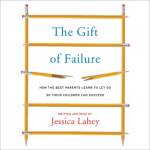A recent meta-analysis of 100 years of research (you read that right — 100 years) suggests that both ability grouping and appropriate grade acceleration benefit students.
Interestingly, the authors argue that ability grouping benefits students across the academic spectrum: “Overall, high-, medium-, and low-ability students benefited equally from ability grouping” (p. 889).
The authors of this study focus on academic benefits, and don’t look at studies that focus solely on social-emotional results. When it comes to grade acceleration, however, they do see a trend: “Numerous studies have investigated the peer dimension of acceleration and generally reported not only no harm but also small to moderate social–emotional benefits of academic acceleration” (p. 853).
For these acceleration programs, selection criteria make a real difference. At least one of the studies they review finds “socio-affective benefits for students selected on the basis of academic readiness and social and emotional maturity, but also cautions that these programs may be harmful to individual students who are arbitrarily selected on the basis of IQ” (p. 892-3).
In other words: we can’t rely solely on cognitive tests to make such placement decisions.
Given the passion surrounding this debate, I wouldn’t be surprised to see zealous push-back in upcoming weeks.





One of the problems with ability setting is that students are herded together in the bottom set with very little in common apart from the fact that they have additional needs. In one such English group, we have ADHD (https://www.betterhealth.vic.gov.au/health/conditionsandtreatments/attention-deficit-hyperactivity-disorder-adhd), English as an additional language, an unidentified genetic condition, dyslexia, speech and language difficulties and one with a physical disability. Quite how we are supposed to square that circle with a blanket syllabus, I don’t know. Of course we want to see them as individuals, and we do. But a lack of funding, shortage of teaching staff and cuts in LAS hours stack the odds against us. It is not just students who are impoverished – it is schools.